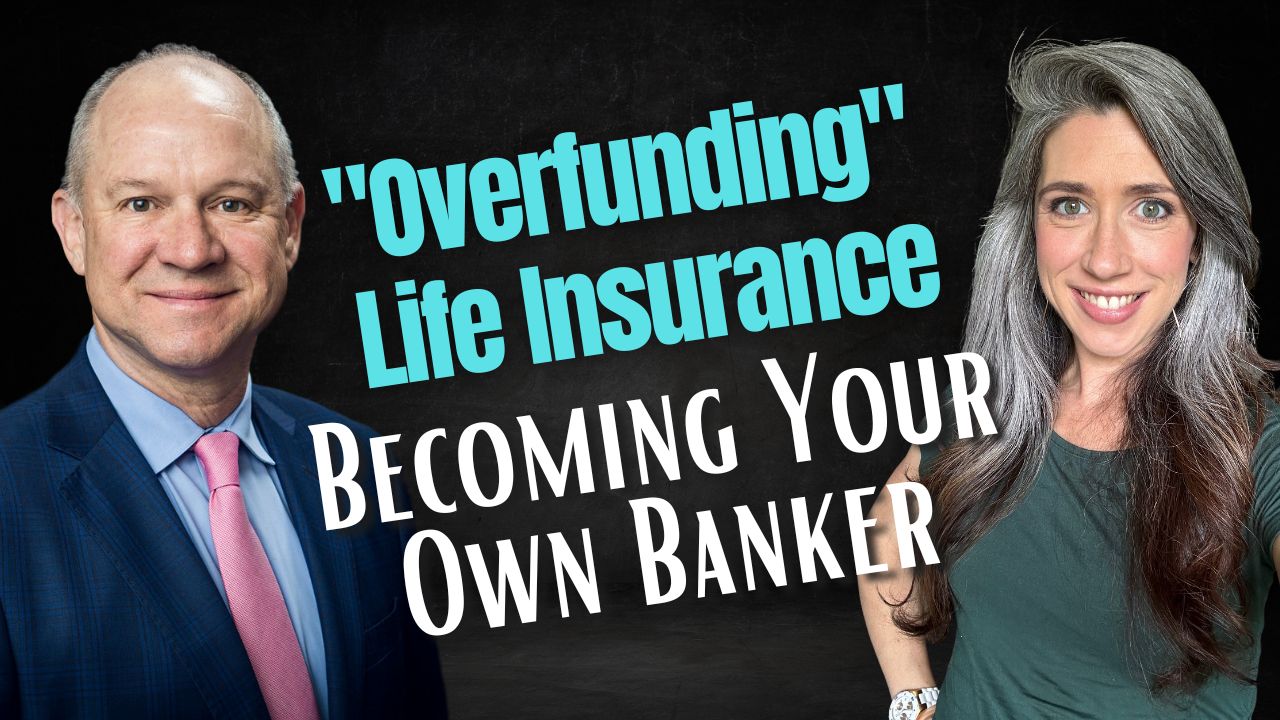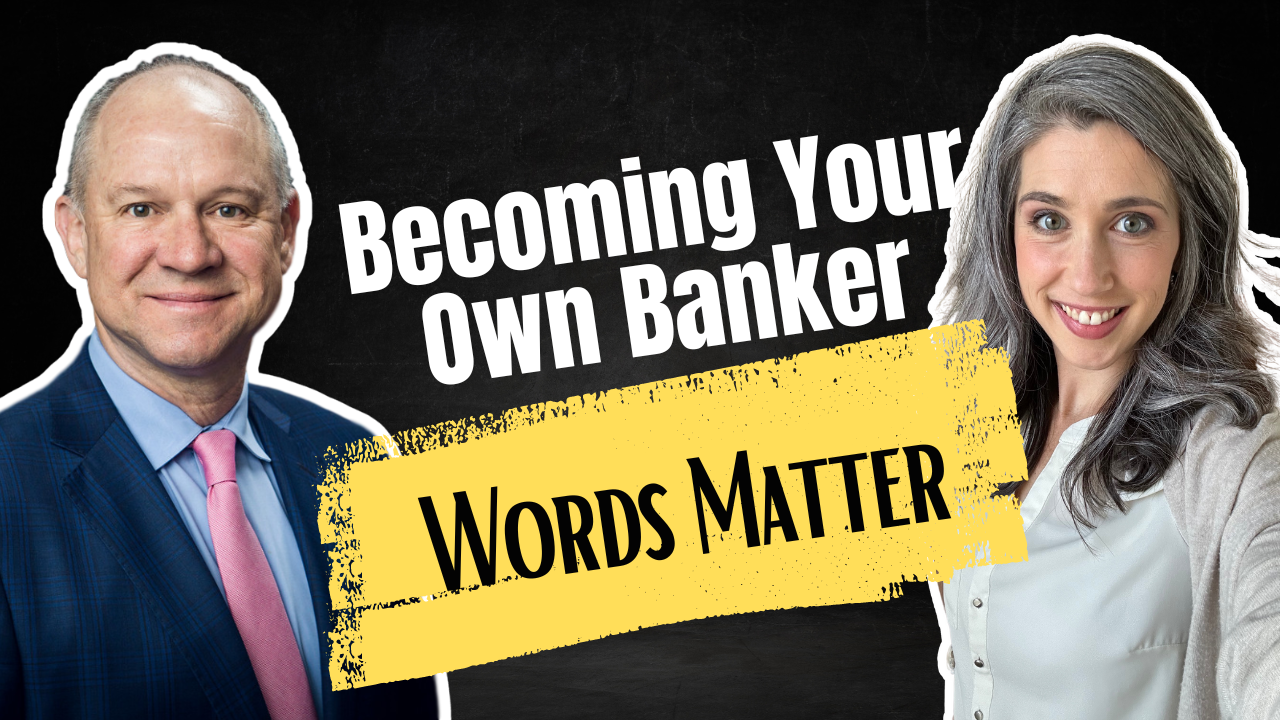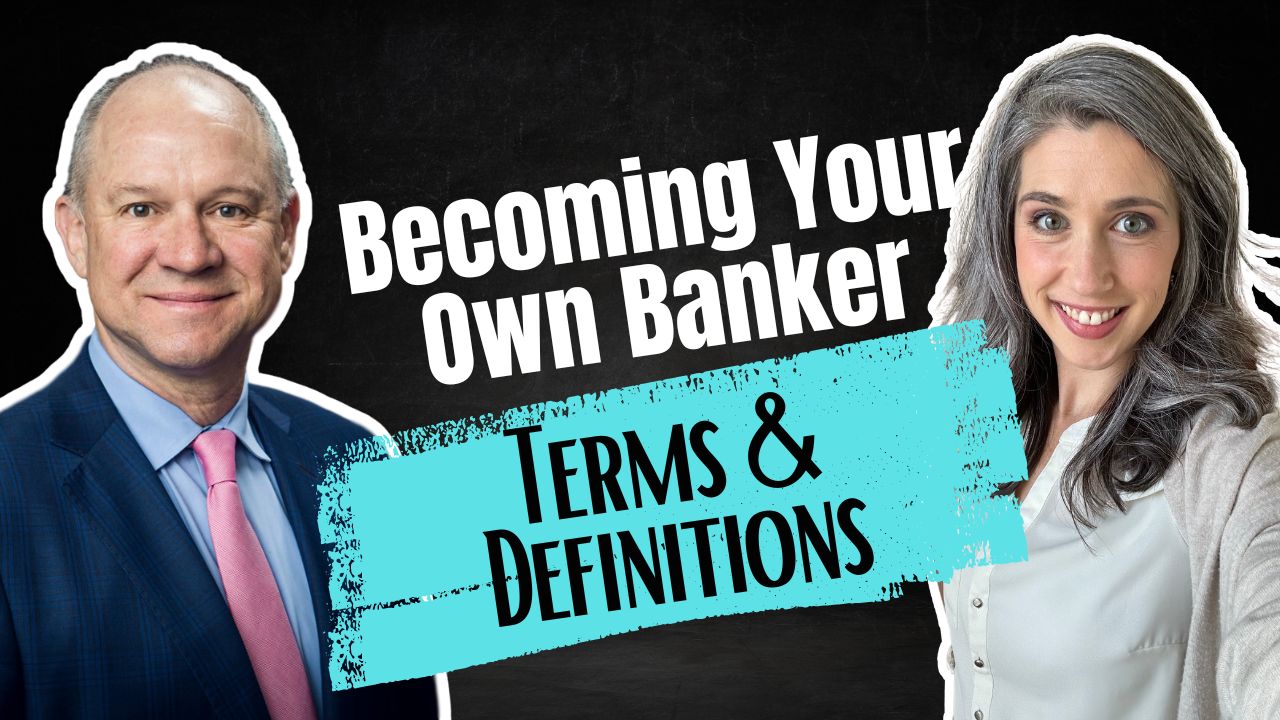
Becoming Your Own Banker, Part 13: Overfunding Life Insurance
Prepare to unravel the mystique behind funding and overfunding life insurance, and the empowering concept of becoming your own banker. This episode holds the key to understanding how to fund a life insurance policy, maximize its cash value, and reap the benefits. Our human-centric approach puts you, the listener, at the forefront as we examine how to expand your contract and build additional ones to create your own holistic financial system.
We dive right into the heart of constructing a life insurance contract that prioritizes both cash value and death benefit maximization. Intricacies of balancing ordinary life, term, and single premium by contract components are laid bare, aiming to achieve the optimal cash value to death benefit ratio. We also confront the challenges of adding a single premium paid-up addition to a contract and the complications that arise when human life value is exceeded—all in the pursuit of financial freedom and security.
Lastly, we venture into the evolution of universal life insurance over the past quarter-century, with a special focus on its transformation following the 2001 stock market crash. The allure of universal life, index universal life, and variable universal life are scrutinized, revealing their potential pitfalls and unpredictability. Before we sign off, we arm you with a list of recommended readings to further your understanding. Included is Nelson Nash’s enlightening book, Becoming Your Own Banker, as we champion the importance of financial literacy and independence. Tune in and embark on this enlightening financial journey with us.
Join us for this insightful look at life insurance, infinite banking, and gaining financial control!
Podcast: Play in new window | Download (Duration: 1:12:35 — 83.1MB)
Subscribe: Apple Podcasts | Spotify | Android | Pandora | RSS | More
Table of Contents
Overfunding Life Insurance
When you fund a life insurance contract, there’s only so much you can add into a policy—relative to the death benefit—before it becomes something else entirely. When you overfund, or add too much PUA into a policy, it actually changes from a life insurance policy to what’s called a modified endowment contract, or MEC.
The precedent for this is written into the tax code, and is the IRS’s way of making sure that people are not funneling al their money into life insurance to avoid taxes. After all, cash value grows in a tax-advantaged way, and you can actually experience it tax-free over your entire life if used correctly.
When a policy becomes a MEC, it loses the tax benefits, and becomes an ordinary taxable account. Meaning that you’ll have to pay taxes on the growth of the policy, when you access the funds. While this does make a policy less efficient, some people may be okay with a policy becoming a MEC under certain circumstances.
The Importance of Policy Design
When you’re designing a policy, it’s easy to think that the best possible design is to have the lowest premiums relative to your death benefit. However, that’s not strictly true with life insurance. The more you put into an insurance policy, the more early cash value growth you can have. And so in most cases, you want to cozy up as close to the MEC limit as possible. At the very least, you want to aim for that.
However, you also have to consider your priorities. Do you want to prioritize a higher death benefit in the early years, or higher cash value? This is going to depend on what assets you already have, most likely. But once you know the answer, you’ll know whether you want to maximize PUAs or not, and toe that MEC limit.
The reason “base” premium doesn’t toe that MEC line is simply because it’s pure equity in the death benefit. Actuaries do a great job of calculating exactly how much you need to pay for your cash value to equal your death benefit at endowment. PUAs, on the other hand, are considered extra, and incrementally raise both the death benefit and the cash value.
[19:34] “The longer you pay into the contract, the more cash value you have compared to death benefit.”
How Long Should You Fund a Policy?
Another factor of overfunding is how long you pay into a policy. The MEC limits on a policy are about early year funding. In other words, they don’t want you funding a policy in a single year. These MEC limits apply to the first seven years of policy ownership.
So in general, you’ve got to toe the line for the first seven years. What about after that? How long can you pay for a policy, and how long should you? This is another facet of policy design that’s critical, and can get confusing fast.
If you’re using a policy to create your own banking function, however, you probably want to fund your policy for as long as possible. Remember, the longer you fund it, the more it grows and the more it CAN grow thanks to compound interest. This is something you want to decide when your agent is drawing up illustrations for you to look at, as it contributes to your base premium “cost.”
What if You Want to Shorten Your Payment Window?
While a long payment window allows you to fund your policy for as long as possible, you might still find that you’d prefer a shorter payment window. Or maybe you want to retroactively shorten your payment window. Let’s explore those funding options.
If you know you want a short payment window before you buy your policy, you can do a 10-pay. This means you pay premiums for only 10 years. While this can increase your early cash value, it will also pull down the amount of death benefit you can purchase.
The problem with a 10-pay is that you can’t decide after 10 years that you want to keep funding it. While the cash value will continue to grow even after the funding period, you’ll lose volume of interest in the later years.
Instead, you could design a policy with the proper amount of Base and PUA premium so that you have the option to pay base-only if you want. Or, you can do something called a reduced-paid-up.
What is Reduced-Paid-Up?
If you have a life insurance policy and decide that you want to stop paying premiums, there’s a possibility you can do a reduced-paid-up contract. The insurance company will look at how much you’ve already paid into the policy, and adjust the death benefit according to your age and what you’ve paid. At this point, your premiums stop completely.
You cannot reverse this decision, so it’s not something to choose lightly. However, if you have some convertible term insurance, and you decide you want to increase your liquidity, you can convert and start paying whole life premiums on that policy.
Book A Strategy Call
Do you want to coordinate your finances so that everything works together to improve your life today, accelerate time and money freedom, and leave the greatest legacy? We can help! Book an Introductory Call with our team today https://themoneyadvantage.com/calendar/, and find out how Privatized Banking, alternative investments, or cash flow strategies can help you accomplish your goals better and faster. That being said, if you want to find out more about how Privatized Banking gives you the most safety, liquidity, and growth… plus boosts your investment returns, and guarantees a legacy, go to https://privatizedbankingsecrets.com/freeguide to learn more.
Becoming Your Own Banker, Part 29: Words Matter
Ever felt like financial jargon was designed to confuse rather than clarify? Join us as we navigate the labyrinth of financial terminology, particularly within the infinite banking sphere. It’s not just about learning by rote; it’s about cementing a rock-solid financial strategy based on clear, precise language. By dissecting common misconceptions, we aim to transform…
Read MoreBecoming Your Own Banker, Part 28: Infinite Banking Definitions
Have you ever felt like you’re on a financial hamster wheel, constantly spinning but never gaining traction? Join us as we unpack the epilogue and glossary of Nelson Nash’s “Becoming Your Own Banker.” It’s a journey through the intricate philosophy of IBC, as we cover Infinite Banking definitions that shows how effective money management can…
Read More


